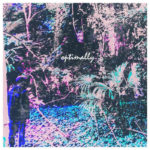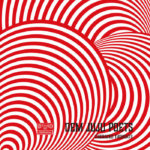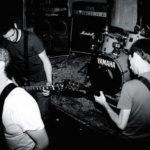Tag: europe
Untitled
(via Dem Juju Poets)
Dem Juju Poets, aka David Hanke, is a breath of fresh air for anyone who likes the idea of retro-sounding Afrofunk but finds that most modern takes are too bland to remember. The German DJ has been making solid Afropunk-inspired cuts since 2008, and his new album, with a lively flow that actually makes you wanna get up and dance, will further establish his name worldwide. The debut LP will be released April 21st via Matasuna Records.
From the Bandcamp bio:
“What initially started as idea for a DJ-duo project quickly turned into a new production outlet for German producer David Hanke. He is well known for his Northern Jazz, Funk and Afrofunk productions under various monikers ever since his first release back in 2008. The most recognized surely is his Renegades Of Jazz-alias.
After starting to fully embrace the Afrofunk vibe with his 2016-released Renegades Of Jazz album ‘Moyo Wangu’ as well as two Dem Juju Poets singles in the same year it’s now about time to release ‘Liberated Thoughts’ – the longplay debut for Dem Juju Poets which is scheduled for April 2017.
Having spent an influential part of his childhood in Arusha, Tanzania and engrained the music of East Africa, his sound combines these influences with modern, more club-orientated electronic Afrofunk productions which defines the core sound of Dem Juju Poets.
With ‘Liberated Thoughts’ Hanke refines his Afrofunk vision for 2017 informed by his experience as a DJ in venues all over Europe which naturally led to a more floor functional production approach.”
Dem Juju Poets:
Untitled
(via Adorno)
Between 2007 and 2012, Lisbon-born band Adorno released twenty songs spread across two EPs and six splits, like a book whose chapters came out quarterly on the pages of a newspaper. And just like a book, these twenty songs tell the story of a friendship expressed through uncompromised emo that is not detachable from the political values it was born with.
“We will be aware of our own contradictions and we will make mistakes. Don’t need regret,” they sing on their sixth song, “Life. Love. Don’t Need Regret”. It’s only one of their many incurably optimistic anthems, sundering the band from the stereotypes of their motherland Portugal, often associated with Fado music and sadder feelings, and showing traces of their necessary internationality. In their first year, the band couldn’t resist doing a full European tour after just seven shows between Portugal and Spain. And the fact that now the band members live between New York, Barcelona and Lisbon confirms such spirit.
Though, when describing the band’s lyrics, optimistic might not be the right term, as they are more motivational in quite an hardcore-inspired way rather than plain happy. But the sonic framework is different, certainly influenced by ’90s emo and post-hardcore but made more exotic by the particular ability of the band to create their own personal style. Tapering rhythms and beaming guitars steal the show, while the vocals went from the coarse screams of their first EP to the hearty and amicable imperfection of their latest works. Add a little bit of Saudade, the nostalgic/melancholic emotion that is typical of the Portuguese tradition, and it’s enough to turn Adorno into one of the most memorable emo bands Europe have ever seen.
Adorno:
Untitled
(via Svetlana Maraš)
Svetlana Maraš excellent sampling work is the latest release from Norient, a Swiss online magazine that searches for contemporary music, sounds, and noises from around the world (just like us!).
From Norient’s Bandcamp:
“For her audio-visual cut-up composition MATTER OF FACT, Serbian composer and sound artist Svetlana Maraš has sampled, remixed and developed the interview material used in the Norient exhibition Seismographic Sounds – Visions of a New World.
Words and music, their fusion and their frisson, fascinate this artist, inspiring much of her work. She is less interested in word setting and more in exploring and distilling the sonic possibilities at the heart of spoken language and organized sound.
In this work, the ‘lyrics’ are entirely made out of snippets of interviews with people from all over the world; the recorded fragments divorced from their original contexts become richin semantic ambiguity and ripe for alternative interpretations. This is the ‘me, me, me’ of the modern world and its’ egocentrism – dissected, juxtaposed, pilloried, criticized and sonified.
Commissioned by Norient and CTM for «Seismographic Sounds» exhibition at the CTM Festival 2016 Berlin, MATTER OF FACT premiered as an interactive installation.”
Svetlana Maraš:
Norient:
Untitled
(via Зарница)
Russian screamo has always had a few defining characteristics carving out its own place and fanbase all over the world: a certain tundra-inspired post-rock influence, dark yet hopeful and moving atmospheres, epic guitar riffs, and broken-hearted screaming. It’s a recipe that repeats itself over and over but rarely gets boring. Therefore, it’s quite a surprise to find out that Зарница, a new Russian all star band featuring members and ex members of well-known screamo and post-rock acts such asNamatjira, Sen Deni (from Minsk, Belarus), Totoro, Маяк and more, doesn’t play screamo.
Зарница, which means “summer lightning” and is pronounced “zarneetsa”, is a four piece based in Moscow. On their first EP released in 2016, В доме престарелых, one can certainly find a lot of influences that necessarily derive from the musical background of the band’s members, especially when it comes to the ultra-melodic and uncontainable guitar riffs. However, the post-punk driven rhythms and the drunken La Dispute vocals change the settings of Зарница’s imagery, and the final result is much more similar to early The Cure or to Makthaverskan.
The contagious liveliness of Зарница, together with their queer-oriented appearance at their own concerts, shows just how much its members needed to get off the dark tones and themes they were used to. Their songs are summer tales about being bored, getting drunk on wine, and missing the last metro home. But behind the excitement of their fans jumping at their shows, an almost unnameable fear grows through the band’s disco-punk riffs: it’s the fear of growing old and tired, of forgetting youth’s pleasures and ideals, and most of all of the always disquieting Russian winter approaching every time the summer ends. Honestly, though, Зарница’s music is warm enough to survive that as well.
Untitled
(via Laibach)
The small Slovenian mining town of Trbovlje is famous for two things: the tallest chimney in Europe and Laibach. Since their beginning in 1980, Laibach – named after the German name of the capital Ljubljana, back then part of socialist Yugoslavia – has become one of the most provocative bands the world has ever seen.
From the creation of the ambiguous art collective Neue Slowenische Kunst (which acts like a nation and even prints its own passports) and the usage of Malevič‘s black crosses as a symbol to their ’20s avant-garde-inspired performances and their simil-fascist and socialist aesthetics, which led them to define themselves as “totalitarian rock”, Laibach have constantly tried to shock their audience. During the ’80s, they received a few bans – and luckily for them, Slovenia was the least rigid Yugoslav republic – but even when their country became independent, they didn’t stop provoking and focused on the concept of Europe.
Over the course of 37 years, the band has released eight studio albums and several singles, compilations, and soundtracks. After the purely industrial sound of their beginnings, they slowly started borrowing elements from classical music and displayed a certain interest in covering popular songs, drastically changing the atmosphere and intention of the original tracks. Take “Opus Dei (Life Is Life)”: originally called just “Life Is Life”, an enthusiastic anthem in the name of life itself by Austrian band Opus, it was turned into a disquieting eulogy of power.
By projecting totalitarian aesthetics to capitalism and consumerism, the Slovenian band managed to remain actual throughout the decades and influenced a large number of bands, the most famous of which being Rammstein. In 2015, they gained a certain international attention after their performance in North Korea: they’ve been one of the few western bands to ever play in Pyongyang, and even if they had to heavily review their set list to please the authorities, it makes sense that they were the ones chosen to perform there.
Laibach:
Untitled
(via Ruined Families)
“Keep the children asleep with fairy tales of happiness and imaginary needs,” boldly begins Takis Zontiros on the second track off Blank Language, his band’s second release from 2013. “Make them become what you couldn’t be, keep them fed with meat, but hungry sexually, brainwashed with useless pride” he continues as the band delivers resounding blast beats and iconoclastic riffs where the boundaries between different instruments are only fleetingly drawn. The name of the song was “To New Parents”.
Ruined Families are a hardcore punk five-piece from Athens, Greece. After two powerful yet unripe records, they released Blank Language in 2013. The album sounded like a sonic version of the economic crisis and the following riots that kept their country tense for a long time. It’s as violent and chaotic as it should be, but it doesn’t limit itself to wanton anger and criticism: Ruined Families know precisely where to hit, and even more how to do it. Just like the music, their lyrics are blatantly arrogant, provocative, and fearless.
Three years later the band released Education, a more polished record that dares to explore a wider range of sounds and structures. The guitar riffs occasionally indulge in melodic outputs, the drums often slow down, but the band still maintains its overbearing anger. The reason for this evolution can be found in the change of topic: from analyzing the emotional effects of the political and economic situation in Greece and elsewhere, Ruined Families now focus on new technologies, new medias and on the impact they have on people’s lives.
Instead of using slogans, they give birth to new ideas, new concepts and new implicit ways to revolt. They do this through every tool they have: their songs, lyrics, music videos, and artwork. Everything serves to convey the band’s views and thoughts. All the different aspects come together in a precise and evocative way: Ruined Families create their own three-dimensional language made of words, sounds, and images. As they range over both coherent and discordant solutions according to what they need to accomplish, a whole new band-related imagery and philosophy is set.
Ruined Families:
Untitled
(via Billy Momo)
Billy Momo is a Swedish “urban folk” group, which sounds exactly like what you imagine it to be. “Swim” reminds me of Gorillaz, another genre-bending project that meshes two seemingly clashing styles together to create something groovy and great.
Billy Momo:
Untitled
(via Batushka)
Litourgiya by Batushka – or Батюшка – combines black metal with Orthodox Church imagery in appalling ways, and it was one of 2015’s most surprising albums for three reasons: It came out just a few days before Christmas (pushing everyone to review their end-of-year lists), it’s the debut album of a mysterious band that didn’t reveal their precise location or the names of its members, and it sounds fantastic.
Batushka, who supposedly come from Poland but sing in Russian and Old Church Slavonic, surely know how to play their genre. This could be explained by the fact that they share members with well-known Polish bands, according to their label Witching Hour Production. The musical composition of Litourgiya is superb, as the band wriggles between flawless blast-beats, calm parts where a macabre sound of chains often peeps out, and overwhelming metal rides.
The hallmark of their work, however, is the wide usage of Slavonic chants that melt perfectly with the rest of the music and with admittedly typical black metal vocals. These chants are not just samples of clerical dirges but an integral part of the band’s sound, as they always follow the music and contribute to exalt the piercing morbidness of the guitar riffs.
The band’s mystery has increased their hype even more. It’s been said that the chants they recite have some words changed and some lines reversed, with the result of turning these sacred words into blasphemous messages. The cover, with the erased faces of Jesus and Virgin Mary, points to that direction as well. As a consequence, the band received several death threats from Russian religious extremists and had to cancel their performances in Russia and Belarus.
Regardless, Batushka still managed to perform several shows in the rest of Europe, recreating on stage the gloomy atmosphere of Orthodox churches. After all, like their guitar player himself suggested in an interview, “nothing is more black metal than religion.”
Untitled
(via Ghali)
Seeing how Milan has become a melting-pot of different cultures, it’s not strange to find that the most notable rapper in the city right now is of Tunisian origin. Reaching out from Baggio, a suburb in the western part of the city, Ghali Amdouni – simply known as Ghali – is quickly being recognized and respected in the whole peninsula.
Born in 1993, Ghali started getting into hip-hop at an early age, and by 2011 he had already formed his first hip hop group, Troupe D’Elite. However, it wasn’t until 2015 that he got the chance to grow out of the Milanese hip-hop niche by starting a collaboration with young producer Charlie Charles and establishing himself as one of the most interesting and experimental artists of the country. Dreamy trap beats, a wide use of autotune, and a certain overwhelming musicality are the defining features of his music.
While sometimes these traits seem to overshadow the lyrical work of the rapper, and old school flows are replaced by melodic tones that blend perfectly with the beats, Ghali still manages to bring his experiences to the listener in an endearing way. Occasionally mixing Italian and Arabic, he recounts tales of marginalization and prejudice while spitting rhymes about his life in the most sincere way possible, without hiding any detail or keeping any secrets.
Ghali hasn’t recorded a full album yet, choosing instead to issue a series of poignant singles. Tactically released with gaps of two-four months within each other, they’re all matched with impressive music videos. The imaginary he evokes is rarely a troubled one, in a ghetto-inspired manner. Instead, his videos are trippy, filled with childhood references and surreal settings, from the snowy landscape of Dende to the ethnically connoted desert of “Wily Wily,” one of his best tracks.
Ghali:



